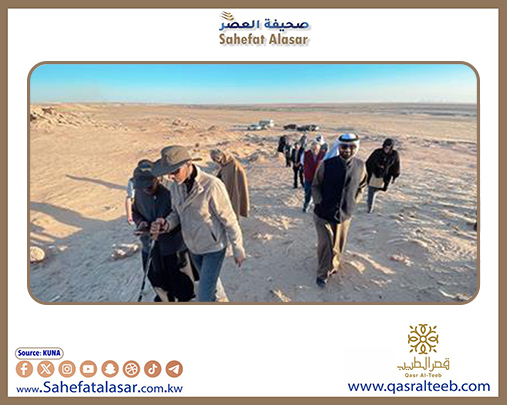


Dr. Mubarak Al-Hajri, President of the Kuwait Earth Sciences Association, has confirmed that Kuwait possesses several geologically significant sites eligible for inclusion in UNESCO's Global Geoparks Network (GGN). Speaking to KUNA on Saturday, Dr. Al-Hajri emphasized that geoparks have become integral to sustainable development plans, economic growth, and tourism diversification.
Strategic Goal: Designating Kuwaiti sites as UNESCO Global Geoparks to preserve local heritage and boost eco-tourism
Definition: Geoparks are unified geographical areas with unique geological heritage, managed through conservation, education, and sustainable development
Proposed Pilot Site: Sabbiya area, rich in Ubaid civilization history and ecological diversity
Implementation Phases:
Scientific evaluation of geological, environmental, and cultural significance
Infrastructure development (trails, visitor centers, signage)
Formation of multidisciplinary management teams
Digital marketing and global geopark networking
Open-Air Laboratories: For studying climate history, biodiversity, and earth sciences
Global Precedents: Successful models in disaster preparedness (earthquakes/volcanoes) and biodiversity conservation
Kuwait Vision 2035: Aligns with tourism diversification goals, ahead of Kuwait hosting the 2025 UN Tourism Regional Committee meeting
Government-private sector collaboration for holistic development
Educational programs with Kuwait University
UNESCO nomination process (4-year designation cycle)
"This national project requires integrating traditional crafts, local cuisine, and cultural activities to protect rare sites from degradation while supporting sustainable livelihoods," stated Dr. Al-Hajri.
Context: UNESCO's GGN includes 195 sites worldwide, requiring reevaluation every 4 years. Kuwait's potential entry would highlight its desert landforms and fossil records of the Tethys Sea evolution.
